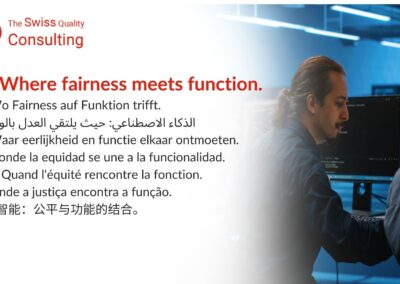Understanding Fair Use and Its Role in Intellectual Property Law
The Concept of Fair Use in Copyright Law
The concept of fair use in promoting creativity plays a pivotal role in copyright law, serving as a critical mechanism that balances the interests of rights holders with the public’s interest in accessing and using creative works. In essence, fair use permits the use of copyrighted material without the need for permission from the rights holder, provided that the use is transformative and contributes new meaning, expression, or message. This legal doctrine is crucial in fostering an environment where creativity and innovation can thrive.
Fair use is particularly important in today’s rapidly evolving digital landscape, where the boundaries between original and derivative works are often blurred. By allowing creators to build upon existing works, fair use encourages the development of new and original content, thus enriching the cultural and intellectual landscape. For instance, in countries like Saudi Arabia and the UAE, where cultural heritage and modern innovation intersect, fair use can enable artists and innovators to reinterpret traditional art forms in contemporary contexts, thereby promoting cultural continuity and creative diversity.
However, the application of fair use is not uniform across jurisdictions, leading to variations in how it is interpreted and enforced. In the United States, fair use is evaluated based on four factors: the purpose and character of the use, the nature of the copyrighted work, the amount used, and the effect of the use on the market for the original work. In contrast, other countries may have different criteria or lack a formalized fair use doctrine altogether. Despite these differences, the underlying principle remains the same: to strike a balance between protecting creators’ rights and fostering innovation.
Promoting Innovation Through Transformative Use
Transformative use, a key component of fair use, allows creators to use existing works in ways that add new expression, meaning, or value, thus distinguishing the new work from the original. This concept is fundamental to the promotion of innovation, as it enables creators to draw inspiration from existing works and repurpose them in novel and inventive ways. For example, in the technology sector, developers often rely on open-source software and existing code libraries to create new applications and solutions. This collaborative approach not only accelerates technological advancement but also fosters a culture of shared knowledge and innovation.
In the context of Saudi Arabia and the UAE, transformative use can play a significant role in driving economic diversification and technological development. By embracing fair use principles, these nations can encourage local entrepreneurs and businesses to innovate and create value-added products and services. This is particularly relevant in sectors such as Artificial Intelligence, Blockchain, and the Metaverse, where rapid innovation is key to maintaining a competitive edge. Moreover, by supporting transformative use, governments can promote a more dynamic and inclusive creative economy that benefits a broader range of stakeholders.
Additionally, fair use can facilitate cross-industry collaboration, enabling businesses to leverage intellectual property from different fields to create innovative solutions. For instance, a company in Dubai might use architectural designs protected by copyright to develop a virtual reality application for the Metaverse, thereby merging traditional art with cutting-edge technology. Such synergies are crucial for fostering a vibrant and interconnected creative ecosystem that can drive long-term economic growth and development.
Fair Use in Business Strategy and Leadership
For business executives, mid-level managers, and entrepreneurs, understanding and effectively leveraging fair use can be a powerful tool in their strategic arsenal. By incorporating fair use principles into their business strategies, companies can enhance their creative output, streamline innovation processes, and mitigate legal risks associated with intellectual property infringement. This approach not only boosts business success but also fosters a culture of innovation and continuous improvement.
Leadership and management skills are also critical in navigating the complexities of fair use. Effective leaders must be well-versed in the legal and ethical implications of using copyrighted material and must foster an organizational culture that respects intellectual property rights while encouraging creative experimentation. In Riyadh and Dubai, where business environments are rapidly evolving, leaders who can skillfully balance these considerations will be better positioned to drive innovation and achieve competitive advantages.
Moreover, executive coaching services can play a pivotal role in helping leaders develop the necessary skills and knowledge to effectively leverage fair use. By providing tailored guidance and support, executive coaches can help leaders understand the nuances of copyright law, develop strategic approaches to intellectual property management, and foster a culture of innovation within their organizations. This holistic approach to leadership development is essential for navigating the challenges and opportunities presented by fair use in the modern business landscape.
Implementing Fair Use Policies for Business Success
Implementing fair use policies within an organization requires a comprehensive understanding of copyright law and a strategic approach to intellectual property management. Companies must develop clear guidelines that outline the permissible uses of copyrighted material and provide training to employees on how to apply fair use principles in their work. By doing so, businesses can minimize the risk of legal disputes and foster a culture of innovation and creativity.
In addition to internal policies, businesses should also engage with external stakeholders, including legal experts, industry associations, and government agencies, to stay informed about developments in copyright law and fair use practices. This proactive approach enables companies to adapt their strategies to changing legal landscapes and leverage new opportunities for innovation. For instance, businesses in Saudi Arabia and the UAE can collaborate with local intellectual property offices and international organizations to develop best practices for fair use and intellectual property management.
Furthermore, leveraging modern technology solutions such as Artificial Intelligence and Blockchain can enhance the implementation of fair use policies. AI-powered tools can help businesses identify instances of fair use and assess the potential risks and benefits of using copyrighted material. Blockchain technology, on the other hand, can provide a secure and transparent platform for managing intellectual property rights and facilitating fair use transactions. By integrating these technologies into their operations, businesses can streamline their intellectual property management processes and drive innovation more effectively.
The Future of Fair Use and Innovation
As the digital landscape continues to evolve, the role of fair use in promoting creativity and innovation will become increasingly important. Emerging technologies such as Generative Artificial Intelligence, the Metaverse, and Blockchain are transforming the way we create, share, and consume content, presenting new challenges and opportunities for copyright law interpretation. In this context, fair use will play a critical role in enabling creators to harness the full potential of these technologies and develop new and original works.
For countries like Saudi Arabia and the UAE, embracing fair use principles and fostering a supportive environment for innovation will be key to achieving long-term economic growth and development. By promoting a balanced approach to copyright law that protects creators’ rights while encouraging transformative use, these nations can cultivate a dynamic and inclusive creative economy that benefits all stakeholders.
In conclusion, fair use is a powerful tool for promoting creativity and innovation, enabling creators to build upon existing works and develop new and original content. By understanding and effectively leveraging fair use, businesses can enhance their creative output, drive innovation, and achieve business success. As the digital landscape continues to evolve, fair use will remain a critical component of copyright law, fostering a vibrant and interconnected creative ecosystem that drives long-term economic growth and development.
#FairUseInPromotingCreativity #IntellectualProperty #CopyrightLaw #Innovation #BusinessSuccess #SaudiArabia #UAE #Riyadh #Dubai #ArtificialIntelligence #Blockchain #TheMetaverse























